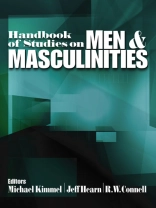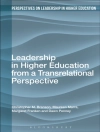In the past, research in the field of gender has mainly addressed issues about women, and has for the most part been developed by women. Recently, the study of gender has rapidly expanded and there has been a growing interest in men′s and boys′ identities, conduct, and problems.
The Handbook of Studies on Men and Masculinities is an interdisciplinary and international culmination of the growth of men′s studies that also offers insight about future directions for the field. The Handbook provides a broad view of masculinities primarily across the social sciences, with the inclusion of important debates in some areas of the humanities and natural sciences. The various approaches presented in this Handbook range across different disciplines, theoretical perspectives, methodologies, and conceptualizations in relation to the topic of men. Editors Michael S. Kimmel, Jeff Hearn, and Robert W. Connell have assembled an esteemed group of contributors who are among the best-known experts in their particular fields.
The Handbook of Studies on Men and Masculinities examines the construction of masculinities in four different frames: the social organization of masculinities in their global and regional iterations; the institutional reproduction and articulation of masculinities; the ways in which masculinities are organized and practiced within a context of gender relations; and the ways in which individual men express and understand their gendered identities. The Handbook is organized in a way that moves from the larger, global, and institutional articulations of masculinities, to the more intimate and personal expressions.
The Handbook of Studies on Men and Masculinities provides scholars, researchers, and students with the most current, incisive scholarship available for the men′s studies area of gender studies. It is a vital resource for those interested in the practical or cultural issues about men, boys, and gender, as well as an excellent addition to any academic library.
Jadual kandungan
1. Introduction
THEORETICAL PERSPECTIVES
2. Social Theories in Researching Men and Masculinities: Direct Gender Hierarchy and Structural Inequality – Oystein Holter
3. Men, Masculinities and Feminist Theory – Judith Kegan Gardiner
4. Queering the Pitch? Gay Masculinities – Tim Edwards
GLOBAL AND REGIONAL PATTERNS
5. Globalization, Imperialism and Masculinities – R. W. Connell
6. Men in the Third World: Postcolonial Perspectives on Masculinity – Robert Morrell and Sandra Swart
7. Masculinities in Latin America – Matt Gutmann and Mara Viveros
8. East Asian Masculinities – Taga Futoshi
9. Men, Masculinities and ′Europe′ – Committee for Research on Men and Masculinities in Europe (CROME)
STRUCTURES, INSTITUTIONS AND PROCESSES
10. Class and Masculinity – David Morgan
11. Male Sexualities – Ken Plummer
12. Men, Masculinities, and Crime – James W. Messerschmidt
13. Masculinities in Education – Jon Swain
14. Boys and Men in Families: The Domestic Production of Gender, Power and Privilege – Scott Coltrane and Michele Adams
15. Fatherhood and Masculinities – William Marsiglio and Joseph H. Pleck
16. ′Gentlemen, the Lunchbox has Landed′: Representations of Masculinities in Popular Media – Jim Mc Kay, Janine Mokosza, and Brett Hutchins
17. Men and Masculinities in Work, Organizations and Management – David Collinson and Jeff Hearn
BODIES, SELVES, DISCOURSES
18. Still a Man′s World?: Studying Masculinities and Sport – Mike Messner
19. Men′s Health Studies: An Overview – Don Sabo
20. Masculinities and Interpersonal Violence – Walter S. De Keseredy and Martin D. Schwartz
21. Polysemous, Polymorphous Bodies: Masculinities and (non)-Normativity – Tom Gerschick
22. Transgendering, Men and Masculinities – Richard Ekins and Dave King
POLITICS
23. Nation – Joane Nagel
24. Globalization and its Mal(e)contents: The Gendered Moral Economy of Terrorism – Michael Kimmel
25. War Militarism and Masculinities – Paul Higate and John Hopton
26. Mullahs, Martyrs, and men: Conceptualizing Masculinity in the Islamic Republic of Iran – Shahin Gerami
27. Men′s Collective Struggles for Gender Justice: The Case of Anti-Violence Activism – Michael Flood
Mengenai Pengarang
Jeff Hearn is currently Guest Faculty Research Professor in the Humanities and Social Sciences, based in Gender Studies and the Centre for Feminist Social Studies, Örebro University, Professor of Management and Organization, Hanken School of Economics, Professor of Sociology, University of Huddersfield, and a UK Fellow of the Academy of the Social Sciences. His recent research has focused on transnational change. He has been at the forefront of critical research on men and masculinities, and has published extensively on sociology, organizations, management, policy, gender, sexualities, violences, cultural studies, and autoethnography. His many books include: ‘Sex’ at ‘Work’ (with Wendy Parkin, 1987/1995); The Gender of Oppression (1987), Men in the Public Eye (1992); The Violences of Men (1998); The Handbook of Studies on Men and Masculinities (edited with Michael Kimmel and Raewyn Connell, 2005), European Perspectives on Men and Masculinities (with Keith Pringle and CROME, 2006/2009), Men and Masculinities in Europe (with Keith Pringle et al., 2006/2013), Sex, Violence and the Body (edited with Viv Burr, 2008), The Limits of Gendered Citizenship (edited with Elzbieta Oleksy and Dorota Golanska, 2011), Men and Masculinities around the World (edited with Elisabetta Ruspini, Bob Pease and Keith Pringle, 2011), and Rethinking Transnational Men (edited with Marina Blagojevic and Katherine Harrison, 2013). His latest book is Men of the World: Genders, Globalizations, Transnational Times (SAGE, 2015). He is Managing Co-editor of Routledge Advances in Feminist Studies and Intersectionality book series, Co-editor of NORMA: International Journal of Masculinity Studies, and Associate Editor of Gender, Work and Organization. He was formerly Co-editor of Men and Masculinities for many years; Head of Applied Social Studies, University of Bradford; Research Professor, University of Manchester; Professor of Gender Studies (Critical Studies on Men), Linköping University; Professor II, Sociology, Oslo University; and has been Visiting Professor at many universities. Jeff Hearn has been strongly involved in North-South and European research and policy collaborations, such as the CROME, CAHRV, gen SET, Gen PORT, and Study on the Role of Men in Gender Equality EU projects, as well as profeminist and related activism over many years.












